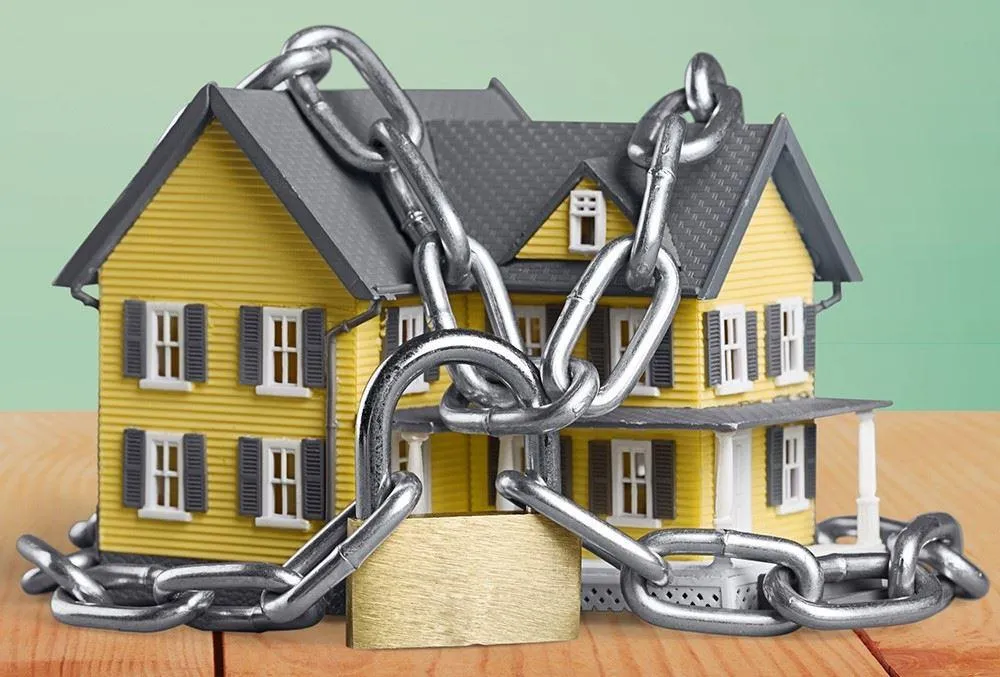
How Scammers Are Stealing Homes
It sounds like something out of a movie—but it’s happening more often than you think.
Here's How It Works
Scammers identify vulnerable properties—often vacant land, second homes, or properties owned outright with no mortgage. Then they forge documents to transfer ownership of the property into their name or a fake identity.
From there, they may:
Sell the property to an unsuspecting buyer
Take out a mortgage using your equity
Rent the home to a tenant and pocket the cash
All of this can happen without the real owner ever knowing. The fraud may not be discovered until months later, often when it’s too late to reverse the damage.
📊 The Cost of Real Estate Title Fraud
According to the FBI, from 2019 to 2023, real estate-related fraud cost U.S. property owners over $1.3 billion. In New England alone, more than 2,300 victims lost a total of $61.5 million.
Most of these crimes went undetected until well after the transaction occurred. And that’s the real danger: you often don’t know you’ve been targeted… until it’s too late to stop it.
Why Is This Happening?
There are three main reasons title fraud is on the rise:
Public Records Are Easily Accessible
County property records are online, searchable, and open to anyone—including fraudsters. They can find out exactly what you own, if it’s mortgaged, and even download copies of your deed.Remote Closings and E-Signatures
While convenient, today’s digital transaction tools make identity fraud easier to pull off. Fake IDs, spoofed notaries, and forged signatures are harder to catch in a paperless process.Unencumbered Properties Are Prime Targets
Homes with no mortgage are particularly vulnerable. These are often owned by retirees, estates, or real estate investors—exactly the people who may not check on their properties regularly.
🛡️ 6 Ways to Protect Yourself (and Your Investment Properties)
Whether you own one property or ten, protecting your assets from fraud isn’t just smart—it’s essential. Here’s how to do it:
1. Set Up Title Alerts
Many counties offer free or low-cost alert systems that notify you anytime a document is recorded in your name or against your property. This gives you a heads-up before damage escalates.
2. Check Your Property Records Regularly
Search your local register of deeds or county clerk’s office online to confirm ownership, liens, and other documents. Make it a monthly or quarterly habit—especially if you own multiple properties.
3. Physically Inspect Vacant or Remote Properties
If you own land, second homes, or rentals in another state, make sure someone visits the property regularly. This could be a property manager, trusted local contact, or even a neighbor who keeps an eye out.
4. Watch for Red Flags
Certain signs may indicate your title has been compromised:
You stop receiving property tax bills or utility notices.
You receive mail addressed to someone else at your property.
Foreclosure or eviction notices arrive for a property you haven’t sold or refinanced.
A mortgage or deed appears in public records that you didn’t authorize.
You're contacted by a lender, tenant, or buyer about a transaction you never initiated.
Don’t ignore these signs. Investigate immediately.
5. Use Third-Party Title Protection Services
Companies like EquityProtect offer services to “freeze” your title—requiring biometric or knowledge-based authentication before changes can be recorded. This is a powerful way to stop fraud before it starts.
6. Establish a Will or Living Trust
Clear estate planning not only prevents confusion among heirs, but it also reduces the chance of title theft from fraudsters exploiting an unclear or unmonitored estate.
Remember: Your property is only as secure as your records. Take proactive steps now—because once someone forges a deed, they may already be holding the keys.
🔒 How Funding Faceoff Protects Its Investors🔒
At Funding Faceoff, we take this risk seriously—because we invest in the same types of properties scammers often target: vacant land, fix-and-flips, and homes owned free and clear.
That’s why we triple-vet every deal.
Every title is reviewed for red flags
Each closing is handled by verified professionals
All properties are secured and monitored throughout the investment term
And here's the best part: Our investors don’t carry title risk. As a first lien holder, you’re in the strongest legal position on every project we fund. That’s just one way we help accredited investors grow their wealth securely, with no hands-on management required.
Book your strategy session now
Lori Greymont
Founder, Funding Faceoff

